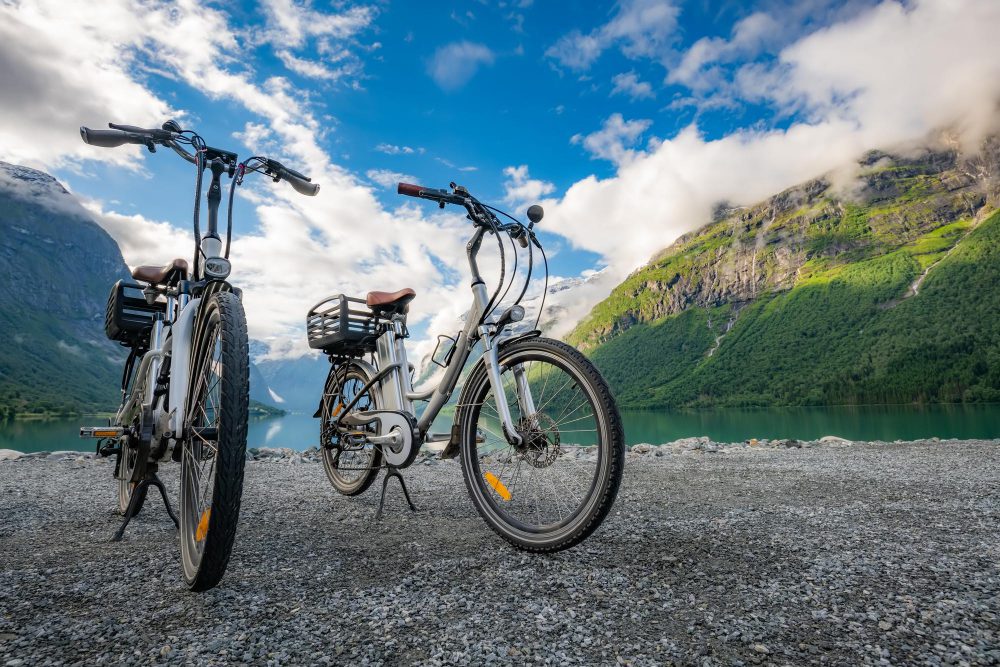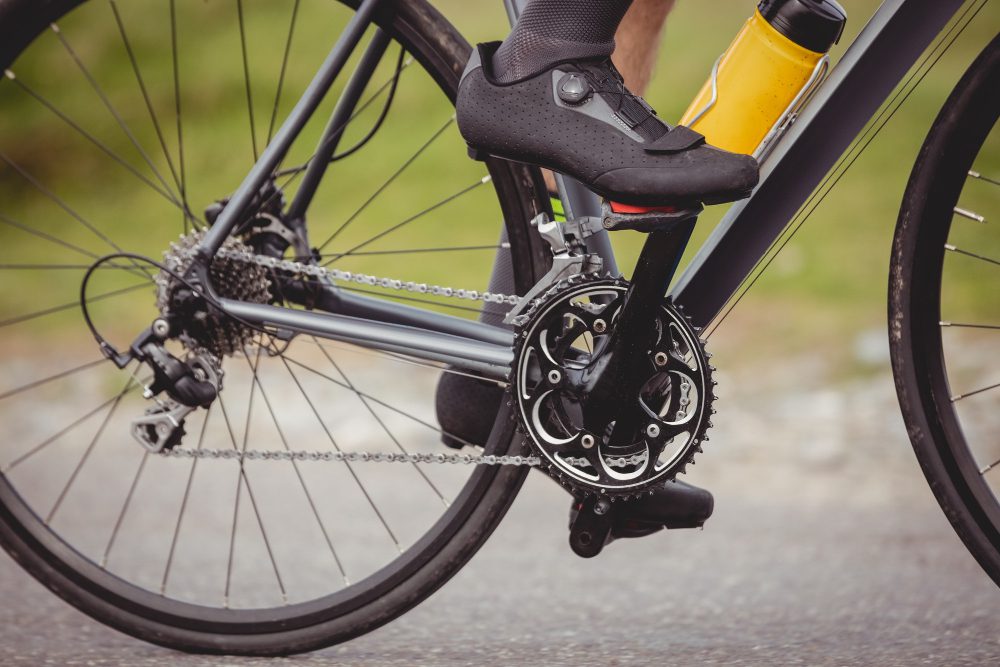Does bike weight matter for touring?
When it comes to touring on a bicycle, there are many factors to consider – route planning, gear selection, physical fitness, and of course, the weight of your bike. The question of whether bike weight matters for touring is a common one among cyclists.
The short answer is yes, bike weight does matter to some extent. A heavier bike can make your cycling experience more challenging, especially when climbing steep hills or riding long distances. However, the impact of bike weight on touring performance varies depending on several factors, such as the terrain you’ll be encountering, your personal strength and endurance, as well as the overall load you’ll be carrying.
The importance of bike weight
When you’re touring, you’ll likely encounter a variety of terrains – from flat roads to steep inclines. In these situations, a lighter bike will generally be easier to maneuver and accelerate, making uphill climbs less strenuous. Moreover, a lighter bike can provide a more comfortable and enjoyable ride, reducing fatigue and allowing you to cover longer distances without feeling weighed down.
However, it’s important to note that the weight of your bike is just one aspect of the equation. The weight of the rider and the overall load being carried – including panniers, camping equipment, and supplies – also contribute significantly to the effort required while touring. Therefore, although reducing bike weight can be beneficial, it’s equally important to focus on minimizing the weight of your gear and pack strategically.
In the words of legendary cyclist Eddy Merckx:
“Don’t buy upgrades, ride up grades.”
Finding the right balance
Ultimately, finding the right balance between bike weight and functionality is crucial when it comes to touring. While a lightweight bike may offer advantages on climbs and long rides, sacrificing durability and load-bearing capacity can be counterproductive for touring purposes.
It’s worth considering the type of bike you choose for touring as well. Touring-specific bikes are designed with extra stability, comfortable riding positions, and higher load capacity, making them better suited for carrying heavier loads over long distances. These bikes often have sturdy frames and components that can handle the demands of touring while still offering a comfortable and efficient ride.
Personal preference and rider experience
Despite the general consensus that lighter bikes are more advantageous for touring, personal preferences and rider experience play a significant role. Some cyclists may prefer the solidity and stability of a slightly heavier bike, as they feel it offers better control and confidence on challenging terrains.
Ultimately, what matters most is finding a bike setup that suits your individual needs and provides the necessary balance between weight, performance, comfort, and durability.
To summarize, while bike weight does matter for touring to some extent, it is just one factor among several that should be considered. Striking a balance between weight, functionality, and personal preference will help ensure an enjoyable and successful touring experience.
How heavy is too heavy to ride a bike?
When it comes to touring on a bike, the weight of your bicycle can play a significant role in determining your overall experience. While some cyclists prefer lighter bikes for their agility and speed, there is no definitive answer to how heavy is too heavy to ride a bike. It ultimately depends on your individual fitness level, terrain, and personal preferences.
Fitness Level
Your fitness level is an important factor to consider when determining the ideal weight of your touring bike. If you are an experienced cyclist with excellent endurance, you may be able to handle a heavier bike without much difficulty. On the other hand, if you are just starting or have limited fitness, a lighter bike may be more suitable.
Terrain
The terrain you plan to ride on also plays a crucial role in determining how heavy is too heavy. If you will be riding mostly on flat roads or gentle slopes, a slightly heavier bike may not present much of a challenge. However, if your tour includes steep hills or mountainous regions, a lighter bike can significantly improve your climbing abilities and overall enjoyment.
Personal Preferences
Personal preferences should not be overlooked when choosing the weight of your touring bike. Some cyclists prioritize speed and efficiency, while others prioritize comfort and stability. It’s essential to find a balance that aligns with your goals and riding style.
“A heavy bike can provide stability and durability, while a lighter bike offers more speed and maneuverability.”
While there is no specific weight limit that applies universally, it’s generally recommended to aim for a fully loaded touring bike to be around 30-40 pounds (13-18 kilograms). This weight includes the weight of your gear, water, and any other supplies you plan to carry.
However, it’s important to note that there are cyclists who successfully tour with much heavier bikes. These individuals tend to prioritize durability and ruggedness over weight savings. Ultimately, the best bike weight for touring varies from person to person.
If you’re unsure about the ideal weight for your touring bike, it’s wise to test ride different options and seek advice from experienced cyclists or bike shop professionals. They can provide valuable insights based on their own experiences and knowledge of the specific terrain you plan to ride on.
In conclusion, while bike weight does matter for touring, there is no definitive answer to how heavy is too heavy. It depends on factors such as fitness level, terrain, and personal preferences. Finding the right balance and weight for your touring bike will ensure an enjoyable and comfortable riding experience.
Is 10 kg light for a road bike?
A common question among cyclists is whether 10 kg is considered light for a road bike. The weight of a road bike can have an impact on performance, especially when it comes to climbing hills and accelerating.
Weight is a key factor influencing the speed and agility of a road bike. Generally, lighter bikes are easier to handle, accelerate faster, and provide a smoother ride. On the other hand, heavier bikes may require more effort to pedal and can be slower in certain situations.
Factors affecting the weight of a road bike
The weight of a road bike can vary based on several factors including:
- Frame material: Different materials, such as carbon fiber, aluminum, and steel, have different weights and characteristics.
- Components: The choice of components, including the groupset, wheels, and handlebars, can significantly impact the overall weight of a road bike.
- Accessories: Additional accessories like lights, racks, and fenders can add extra weight to the bike.
Is 10 kg light for a road bike?
In general, a road bike weighing around 10 kg can be considered relatively light and suitable for most riders. This weight range is commonly found in mid-range and higher-end road bikes. However, it ultimately depends on the rider’s preferences and intended use.
It’s worth noting that professional road racing bikes tend to be even lighter, often weighing around 7 kg or less.
Considerations for touring
For touring purposes, where riders carry additional gear and encounter varied terrain, some cyclists prefer slightly heavier road bikes for added stability and durability. These bikes may have stronger frames and components to handle the extra load.
Ultimately, the best road bike weight for an individual depends on their riding style, preferences, and intended use.
To conclude, a road bike weighing around 10 kg can be considered light and suitable for most riders. The weight of a road bike is just one factor to consider when choosing a bike, with other aspects such as comfort, fit, and handling also playing important roles in overall performance and enjoyment.



